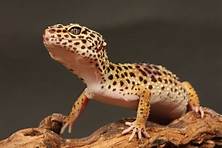How Long Do Geckos Live as Pets?
Geckos are fascinating and popular pets, captivating reptile enthusiasts with their diverse species, vibrant colors, and unique characteristics. However, before embarking on the journey of gecko ownership, it's essential to understand their lifespan and the factors that influence their longevity.

Gecko Lifespan: A Variable Journey
The average lifespan of geckos as pets can vary significantly depending on the species. Some common gecko species and their approximate lifespans include:
- Leopard Gecko: 5-10 years
- Crested Gecko: 10-15 years
- Gargoyle Gecko: 15-20 years
- Tokay Gecko: 10-15 years
- Giant Day Gecko: 15-20 years
It's important to note that these are general estimates, and individual gecko lifespans may vary based on factors such as genetics, diet, housing conditions, and overall care.
Factors Influencing Gecko Lifespan
Several factors play a crucial role in determining the lifespan of pet geckos, including:
1. Genetics and Species
Certain gecko species naturally have longer lifespans than others. For instance, gargoyle geckos and giant day geckos are known for their relatively long lifespans compared to other species.
2. Proper Diet and Nutrition
A balanced diet tailored to the specific needs of your gecko is essential for its long-term health and longevity. Providing a varied diet that includes insects, fruits, and vegetables ensures that your gecko receives all the necessary nutrients.
3. Habitat and Environmental Conditions
Creating a suitable habitat that mimics the gecko's natural environment is crucial for its well-being and lifespan. Factors such as temperature, humidity, substrate, and hiding places should be considered when setting up a gecko enclosure.
4. Routine Veterinary Care
Regular checkups with an experienced reptile veterinarian are essential for detecting and treating any health issues early on. Preventive care and prompt treatment can significantly contribute to your gecko's longevity.
5. Stress Management
Avoiding excessive stress is important for gecko health. Stressful situations, such as improper handling, frequent cage changes, and inadequate environmental conditions, can negatively impact a gecko's overall well-being and lifespan.
Conclusion
Understanding the lifespan of geckos as pets is essential for responsible ownership. By providing proper care, including a suitable habitat, balanced diet, routine veterinary checkups, and stress management, gecko owners can contribute to the longevity and well-being of these fascinating creatures.
Declaration: All article resources on this website, unless otherwise specified or labeled, are collected from online resources. If the content on this website infringes on the legitimate rights and interests of the original author, you can contact this website to delete it.


